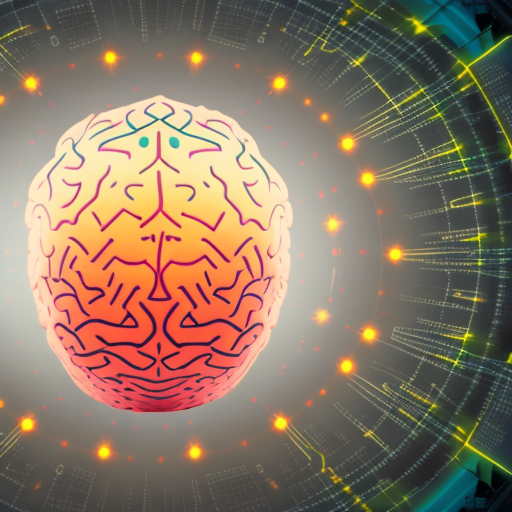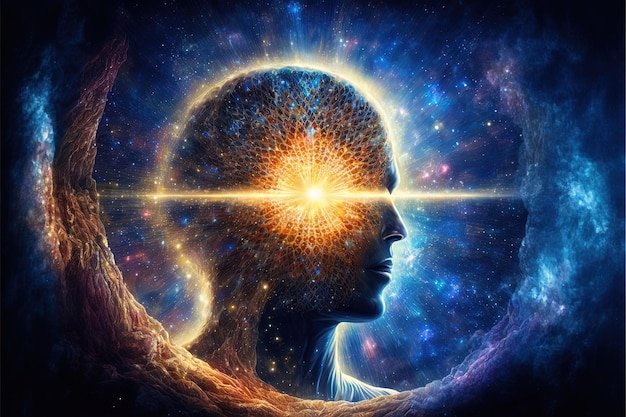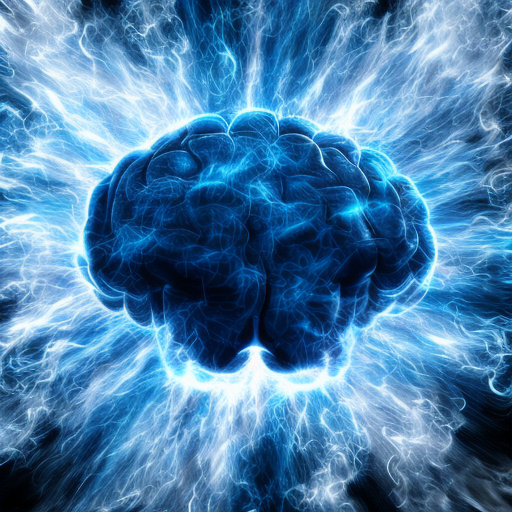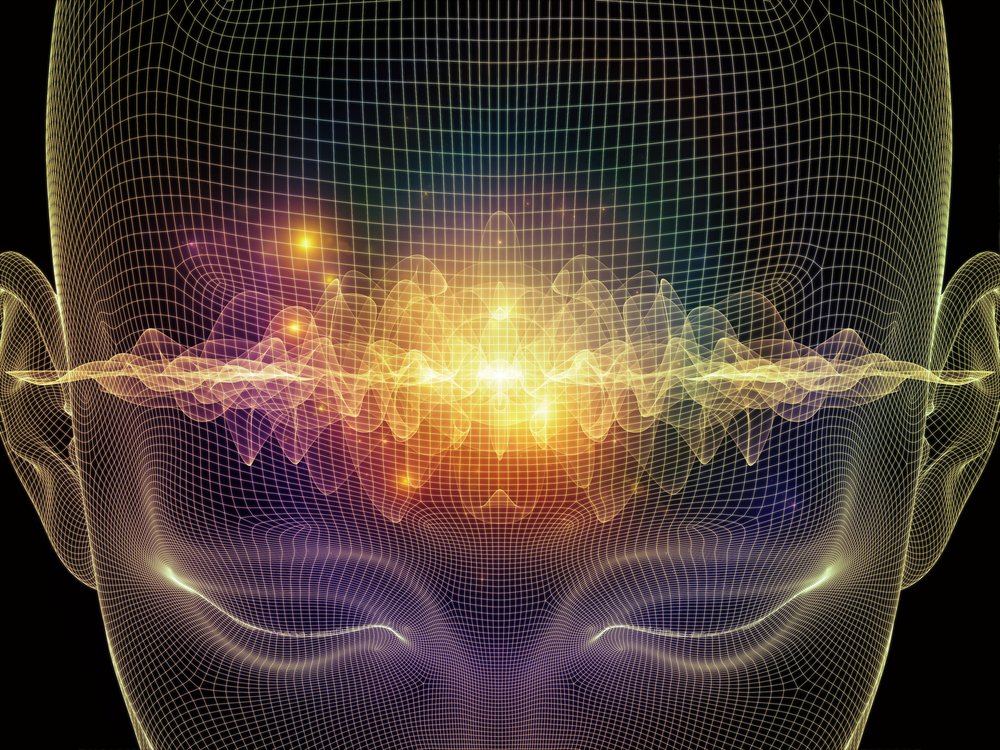
blog about human brain and quantum computer
The Quantum Brain: A Revolution in Cognitive Computing
The realm of quantum computing is Pandora's box that lures scientists with its promise of computational power beyond our wildest dreams. Simultaneously, the intricate workings of the human brain have been a subject of enduring fascination and intense research. What happens when these two seemingly distinct fields intersect? The answer brings us to the concept of the quantum brain. This revolutionary approach marries quantum computing with the principles of neuroscience.
A Brief Overview of Quantum Computing
Classical computers are binary, using a system of ones and zeros, or bits, to perform all computations. However, quantum computers operate on a vastly different principle. They leverage the quantum states of objects, allowing an object to exist in any state or a phase of vibration, such as the spin of an electron, instead of being confined to the binary states of 0 and 1. A quantum computer's basic unit of operation is the quantum bit or qubit, which can exist in multiple states simultaneously, a phenomenon known as superposition. As a result, quantum computers can process a vast array of data and create complex processing networks, much like the human brain.
The Human Brain: A Quantum Computer?
The human brain, a marvel of biological engineering, is often compared to a computer due to its impressive perception, memory processing, and critical thinking capabilities. However, the brain's complex tasks cannot be explained by viewing it as a classical computer with designated input and output channels. For instance, the brain's ability to rapidly process memories using relatively slow neurons is beyond the realm of traditional computing. Scientists hypothesize that the brain employs quantum mechanics for high-speed memory processing to account for such capabilities. According to this view, complex processes like consciousness could be better understood because the human brain and quantum computers use similar mechanisms.
Quantum Mechanics and the Brain
Quantum mechanics, a branch of physics that deals with the behavior of nature at atomic and subatomic levels, maybe the key to understanding how our brains function. The idea of quantum computing in our brains is a familiar one. It has been making rounds among scientists and non-scientists alike. Theoretical physicist Matthew Fisher, for instance, has been probing the possibility of us being quantum computers ourselves. Fisher's research, backed by the Heising-Simons Foundation, aims to explore the role of quantum mechanics in brain functions, particularly in memory storage and processing.
The Role of Quantum Phenomena
Fisher asserts that nuclear spins, found at the core of atoms, provide a potential exception to the generally accepted rule that the brain is not a conducive environment for quantum effects. He hypothesizes that phosphorus atoms, abundant in our bodies, have the requisite nuclear spin that could serve as a biochemical qubit. This idea is supported by multiple experiments, including studies on the dynamics and nuclear spin of Posner molecules. These calcium phosphate nano-clusters might protect the nuclear spins of phosphorus atom qubits, promoting the storage of quantum information.
The Quantum Entanglement of Neurons
In addition to the biochemical qubits concept, scientists are also exploring the potential contribution of mitochondria to quantum processes in the brain. Tobias Fromme, a scientist at the Technical University of Munich, has investigated whether these cellular organelles, responsible for metabolism and cell signaling, can facilitate quantum entanglement within and between neurons via their tubular networks. This research suggests that quantum processes might be instrumental in establishing non-local intra- and intercellular quantum entanglement, thus highlighting a potential quantum-coupled network of neurons.
The Influence of Quantum Mechanics on Brain Function
Integrating quantum mechanics into our understanding of brain function could revolutionize our approach to cognitive science and mental health. The implications of this integration could extend to a myriad of domains, including quantum computing, biology, mental health, and even our perception of what it means to be human. For instance, if quantum processes occur in the brain, they could change how we understand and treat various mental and neurological conditions.
The Intersection of Quantum Mechanics, Neuroscience, and AI
The concept of a quantum brain brings together quantum mechanics, neuroscience, and artificial intelligence (AI) in a fascinating intersection. The quantum brain is a neuromorphic computer that mimics the structure and function of the human brain. The brain's neural networks use several types of computing, one of which is based on neurons that determine whether or not to transmit data based on the input they receive. Another type of brain computing involves synapses, which fine-tune the degree to which a neuron can transmit and store data.
The Quantum Properties of Cobalt
The key to constructing a quantum brain may lie in the quantum properties of cobalt atoms. When arranged into networks, these atoms could provide the basis for quantum processing in the brain. A study led by Dr. Alexander Khajetoorians at Radboud University in Nijmegen, the Netherlands, used cobalt atoms to create a system that mimics the brain's ability to process and store information in the same network structure, leading to a system that can learn without the need for additional AI software.
The ‘paradox’ is only a conflict between reality and your feeling of what reality ‘ought to be’
Challenges and Future Directions
While the concept of a quantum brain is exciting, several challenges must be addressed. For one, the system must be scaled up and tested with real-world information. There is also a need to build a machine based on the entire setup, proving that it works not just in bits and pieces but as a whole. Despite these challenges, the quantum brain opens up an exciting field at the nexus between neuroscience, quantum computing, and AI. It could pave the way for a new era of cognitive computing.
Conclusion
The quantum brain hypothesis presents a revolutionary approach to understanding the human brain and the field of artificial intelligence. By harnessing the power of quantum mechanics, we may unlock the secrets of human cognition and build computers capable of learning like our brains do. While we are still in the early stages of this research, the quantum brain promises a future where AI and cognitive science are deeply intertwined, leading to advancements that could transform our understanding of both fields.



Leave A Comments
Your email address will not be published. Required fields are marked *